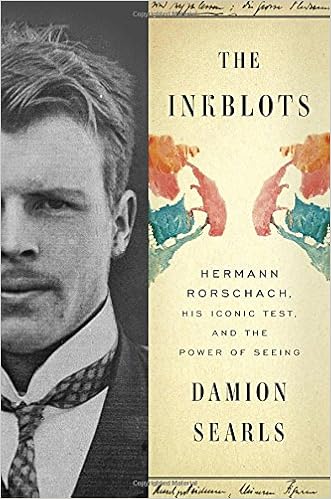Popular Posts
-
The Witnesses by Robert Whitlow is another great addition to his body of work. Mixing the present and the past, The Witnesses tells the ...
-
D ivided: When the Head and Heart Don't Agree by Bill Delvaux is a book about the divide many Christians experience between what they ...
-
The Next Christians: How a New Generation Is Restoring the Faith , by Gabe Lyons, describes the defining characteristics of the “new” type ...
-
The Inkblots: Hermann Rorschach, His Iconic Test, and the Power of Seeing by Damion Searls is part biography, part history of one of the m...
-
Magic has always been somewhat fascinating to me. As a child I went through a phase where I was going to be a magician. I got a little magic...
-
Dancing on the Head of Pen: The Practice of a Writing Life by Robert Benson is a short collection of stories, wisdom, and advice about the...
-
Seeking Refuge: On the Shores of the Global Refugee Crisis by Stephan Bauman, Matthew Soerens, and Dr. Issam Smeir is a call to Christian...
-
A Year with G.K. Chesterton: 365 of Wisdom, Wit, and Wonder is a collection of excerpts from Chesterton's writings edited by Kevin Belm...
-
The Gospel for Muslims: An Encouragement to Share Christ with Confidence by Thabiti Anyabwile is a primer from an ex-Muslim on tips for ef...
-
Rudy: My Story by Daniel “Rudy” Ruettiger chronicles the life story of a man many people are familiar with – the title character fro...
Blogger templates
Blogger news
Blogroll
About
Blog Archive
About Me
Powered by Blogger.
Check out my personal blog!
Monday, May 1, 2017

The Inkblots: Hermann Rorschach, His Iconic Test, and the Power of Seeing by Damion Searls is part biography, part history of one of the most famous psychological tests of all times. By examining both the history of the Rorschach test, as well as the life of it's creator, Searls provides a comprehensive look at how the test has both shaped, and been shaped by, culture and popular thought.
Hermann Rorschach was one of the most interesting figures of his time. Peers with men such as Freud, Jung, and Bleuler, Rorschach was able to take the best from all of them, and add thoughts of his own without getting stuck in any one box or school of thought. His open mindedness as well as his not only willingness but desire to see as other's see allowed him to begin to tap into the potential of the human mind. He somewhat stumbled upon what would become his most famous and lasting contribution to his field. Once he realized the great potential of his inkblot "experiment" (as he called it), he spent the rest of his life refining and improving it. If Rorschach had had more time, the potential for what his test could have accomplished is unlimited.
The test itself has weathered far more storms than its creator could have ever imagined. One of the most interesting aspects of Searls examination of the test is how it was shaped not only by trained psychologists, but also by things such as the standardization of medicine in America and the wars between interpretation and hard data. The beauty and simplicity of the test continues to be lost and rediscovered as it is forced into roles it was never created to fill and then reemerges once again to reclaim itself.
Searls' combination of Rorschach's biography and history of his inkblot test provides a thorough and comprehensive look for the layman. There are some parts that are a bit technical, but they are necessary to explain various controversies and interpretations. Overall, The Inkblots is engaging and easy to read both in its pace and clarity. I'd recommend The Inkblots to anyone interested in psychology, the Rorschach test itself, or simply how things are shaped by forces beyond their creator's control or imagination.
Blogging for Books provided this book to me for free in exchange for an honest review. I was not required to write a positive review. The opinions I have expressed are my own. I am disclosing this in accordance with the Federal Trade Commission's 16 CFR, Part 255
Labels:
Damion Serls,
Hermann Rorschach,
inkblots,
non-fiction,
psychology
Subscribe to:
Post Comments (Atom)
0 comments:
Post a Comment